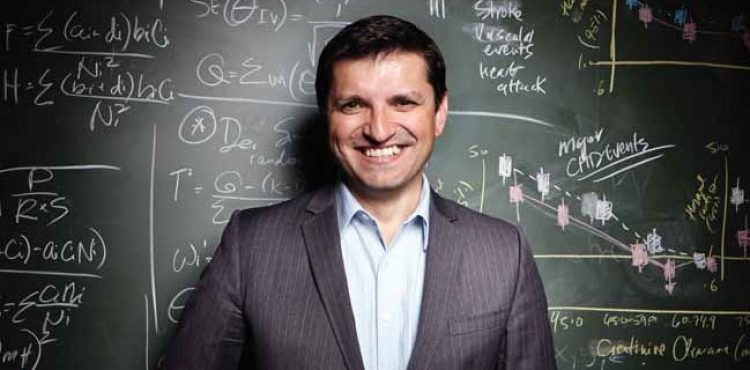It’s a practice that’s growing in popularity as a way to deal with the stresses and noise of modern life, and improving your mental and even physical health. But what exactly is mindfulness and does it really help?
Rooted in Buddist meditation techniques, mindfulness is described as “the practice of purposely focusing your attention on the present moment – and accepting it without judgment”. By taking the mind off the rush of everyday tasks, proponents say it helps reduce stress, improve mental wellbeing, and increase overall happiness. Perhaps as a consequence of this, there may also be physical health benefits like lowering blood pressure and reducing the risk of cardiovascular disease and stroke.
Mindfulness has become so popular that it has celebrity supporters, a trending hashtag on Twitter, and even a peer-reviewed academic journal.
So what is the science behind mindfulness?
Associate Professor Maree Hackett of The George Institute’s Neurological and Mental Health unit says: "Mindfulness is an appealing way to reduce or prevent symptoms of stress, anxiety, and depression, and to improve sleep, thinking, and quality of life. Research in clinical groups of people with a specific illness, and non-clinical groups of people without illness, has shown mindfulness can improve the mental health of school children and adults alike."
Part of the appeal of mindfulness is in its simplicity and ease. "While you can learn mindfulness from a trained instructor or therapist, this may be costly," says Professor Hackett. "It is possible to learn mindfulness from information published online, in books, or in group sessions including activities such as yoga or Tai Chi. By its very nature mindfulness is a quiet, internal activity that can be practised in almost any setting. It is also cheap, requiring no expensive clothing, no fancy gear or special diet. Research also indicates that there are few reported side effects."
Professor Hackett notes that "at the moment, we don't know exactly how mindfulness works. Logic tells us that if we focus solely on the present moment, we are unable to ‘go over’ our previous mistakes and concerns, which are ways of thinking that are associated with symptoms of depression. If we can focus solely on the present moment, we are also unable to worry about future events or challenges, which are ways of thinking that are associated with symptoms of anxiety. By reducing symptoms of depression and anxiety, it is logical that our sleep, thinking and quality of life will improve."
If mindfulness is consistent with general approaches in mental health, then its flow-on benefits to physical health could be realistic too. Professor Craig Anderson, Director of The George Institute’s Neurological and Mental Health, says: “There is good evidence that various forms of meditation can reduce heart rate and blood pressure, so regular habitual mindfulness has the potential for positive effects on cardiovascular health. This could therefore mean improved wellbeing and prevention of serious illnesses such as heart attack and stroke.”
While mindfulness could be a helpful health tip, the experts say more research needs to be done before it can be considered a standard treatment for people with mental health issues.
"As always, we need more information on how useful mindfulness is in improving mental health," Professor Hackett says. "Most research so far has compared people practising mindfulness to people going about their daily lives with no other intervention. Right now, we do not know if mindfulness is as good as or better than other known effective interventions for reducing or preventing symptoms of stress, anxiety, and depression, and improving sleep, thinking, and quality of life."
















